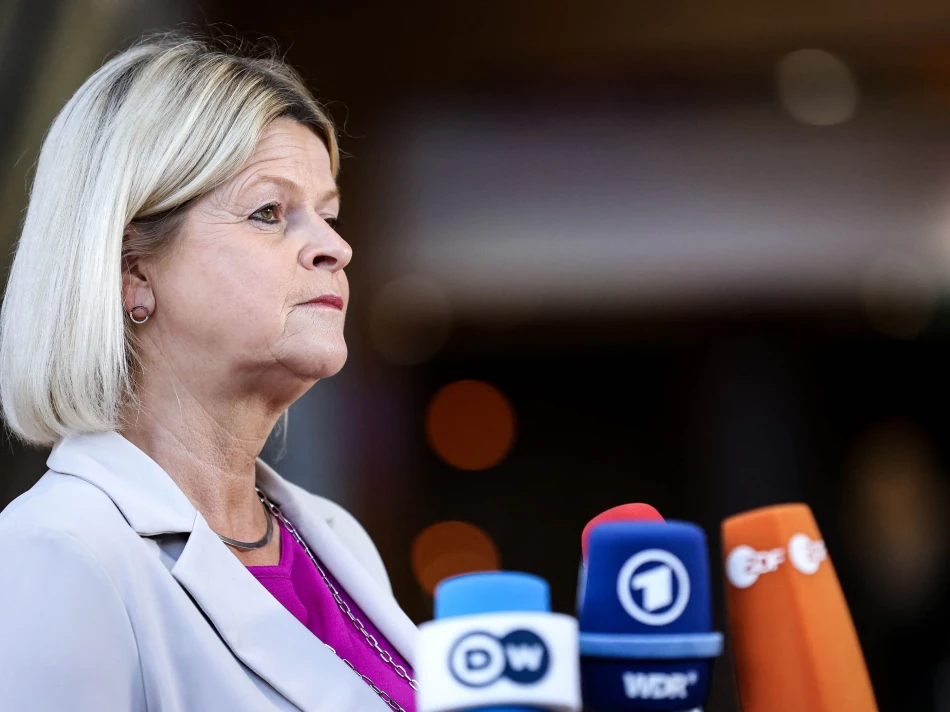
Austria Reaffirms Commitment to Neutrality, Dismisses NATO Membership Aspirations
Austria Doubles Down on Military Neutrality as European Security Landscape Shifts
Austria has firmly rejected any possibility of joining NATO or abandoning its decades-old policy of military neutrality, even as the war in Ukraine reshapes European defense strategies. The Alpine nation is instead positioning itself as a potential mediator, offering to host peace talks between Moscow and Kyiv while maintaining its unique non-aligned status in an increasingly polarized continent.
Vienna's Strategic Calculation
Austrian Foreign Ministry officials emphasized their commitment to neutrality while expressing support for a "comprehensive and just peace" in Ukraine. This carefully calibrated position reflects Austria's attempt to balance Western solidarity with its constitutional neutrality—a status enshrined since 1955 as part of the post-World War II settlement.
Defense Minister Claudia Tanner reinforced this stance, stating that NATO membership "is not up for discussion." Her comments underscore Austria's determination to defend its sovereignty through alternative means rather than collective defense arrangements.
The Neutrality Paradox in Modern Europe
Austria's position stands in stark contrast to the broader European trend toward NATO expansion triggered by Russia's invasion of Ukraine. While Finland abandoned its neutrality to join the alliance in 2023 and Sweden is finalizing its membership, Austria is doubling down on non-alignment.
This divergence highlights a fundamental question facing neutral European states: whether traditional neutrality remains viable in an era of hybrid warfare and great power competition. Switzerland faces similar pressures, though it has shown more flexibility in adopting EU sanctions against Russia.
Historical Precedent and Modern Relevance
Austria's neutrality has served multiple purposes since 1955, facilitating Soviet withdrawal from the country and later providing a venue for Cold War diplomacy. Vienna hosted numerous superpower summits and served as a bridge between East and West—a role Austrian officials appear eager to revive.
The offer to mediate between Russia and Ukraine represents a calculated bet that neutrality enhances rather than diminishes Austria's diplomatic relevance. However, this approach carries risks, particularly if perceived as providing cover for Russian aggression or undermining Western unity.
Economic and Strategic Implications
Austria's decision has significant implications for European defense integration and burden-sharing. While the country participates in EU security initiatives and increases defense spending, it remains outside NATO's Article 5 mutual defense guarantee.
This creates potential complications for regional defense planning, particularly as NATO strengthens its eastern flank. Austria's geographic position—bordering multiple NATO members and serving as a transit route—makes its non-aligned status strategically significant.
Testing Neutrality's Limits
The Ukrainian conflict has already tested Austria's neutrality in practice. The country has provided humanitarian aid to Ukraine and supported EU sanctions while maintaining diplomatic channels with Russia. This selective engagement suggests a more flexible interpretation of neutrality than traditional definitions might suggest.
As the war continues and European security architecture evolves, Austria's commitment to neutrality will face ongoing pressure. The country's ability to maintain this position while contributing meaningfully to European security will determine whether its model offers a viable alternative to military alliance or becomes an increasingly isolated anachronism.
Most Viewed News

 Sara Khaled
Sara Khaled






